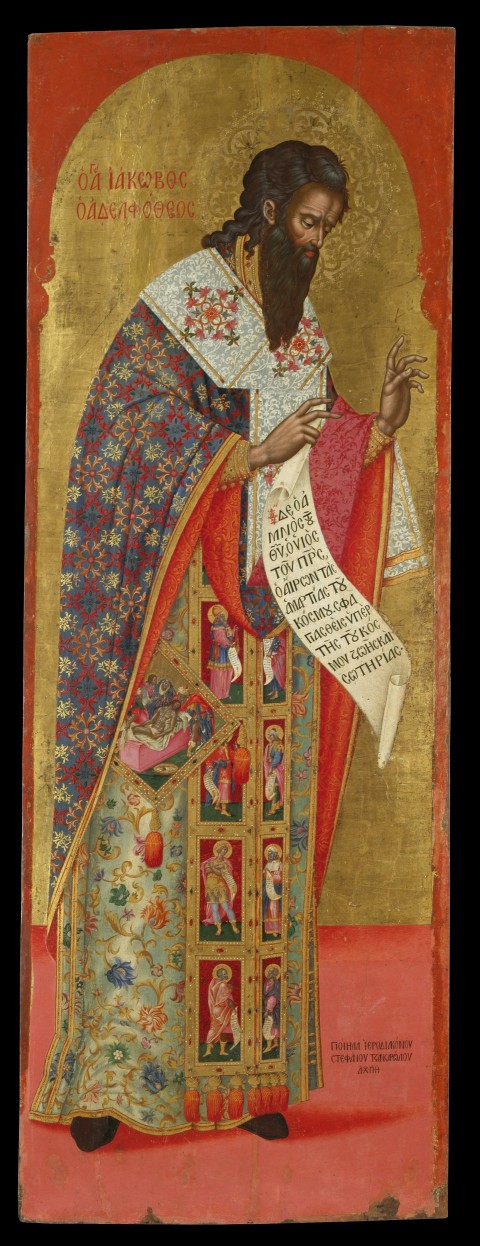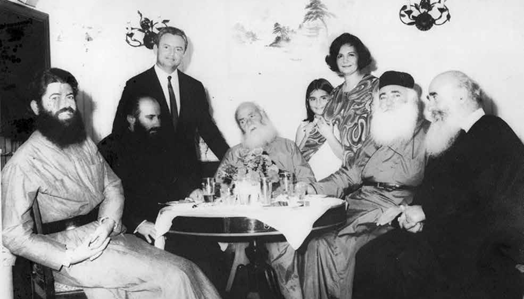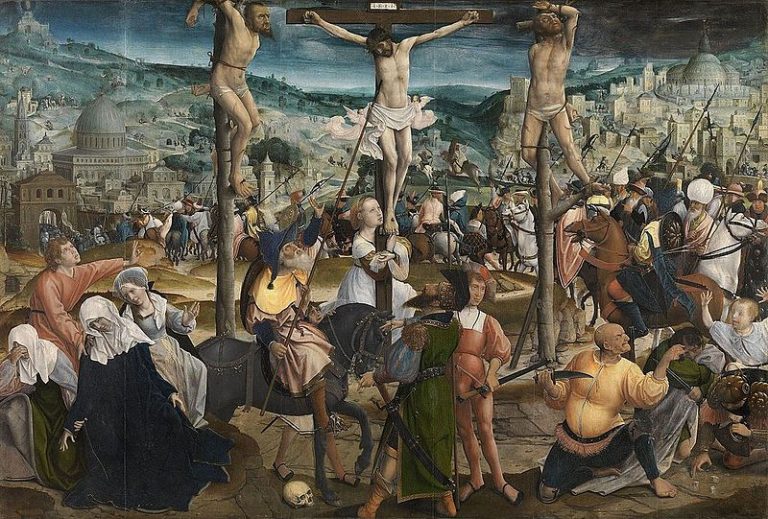Saint James the Confessor and his missionary teaching
Saint James the Brother, according to Saint Nicodemus, was ordained by the Lord himself as the first bishop of Jerusalem. He wrote the Divine Liturgy taught by Jesus himself, which made it an integral part of the Apostolic ministry as well as of ecclesiastical history, revealing its divine origin. The writing of the Divine Liturgy by St. James proves that it was performed not only by Jesus but also by his disciples as an actual communion of the Body and Blood of the God-Man Christ, and not as a mere commemoration. He was the pastor of the city of Jerusalem. His manner of life, the holiness of his life and his missionary spirit were the gifts that made him a model to be emulated. Thanks to his shining example, not only Jews but also pagans approached the Church. It is even remarkable that he made no distinction with regard to his pastoral care. The Jews were disturbed by his missionary work and condemned him to death. So, after arresting him, they took him up to the wing of the Temple and asked him to renounce his faith in Jesus. James refused to submit to their commands. Enraged, they pushed him, he fell from the Temple and before he could breathe his last breath they hit him on the head with a club. He sacrificed his life to meet the true Brother of every suffering soul, the Lord Jesus Christ.

The missionary teaching of the
“Religion is pure and incense to God and to the Father, visiting orphans and widows in their affliction, keeping himself as a shield from the world” (James 1:27). According to St. James, two indispensable characteristics must accompany the man who works in missionary work. First he points out the charitable disposition. The missionary cannot remain an indifferent spectator to the sufferings of people. On the contrary, he ought to ache with the hurting, to pity the sorrowful, to offer himself sacrificially for the purpose of relieving the other person. James is still responding to those who claim to believe but have no works of love: “What profit, my brethren, if he say he hath faith, and have not works; cannot faith save him? If a brother or sister be naked, and lack the minister’s food, and he say unto them of you, Go in peace, be ye warmed and filled, and give them not the affections of the body, what profit is there? 2, 14-17). However, in order for charitable efforts to bear fruit, holiness of life is also required: “keep himself unspiritual from the world”. The worker of the Lord must first be enlightened, and then enlighten, to be free from his passions and then free others, to experience the life in Christ in order to pass it on, to be a living example. To be not bound by the world, but free in Christ. Only then will charitable action bear fruit. Finally, Brother James emphasizes the enormous gain that the person who is missionary on the one hand, and the one who accepts missionary work on the other hand, obtain. 5:19-20). Why would one soul be of such great value? Because the whole world, all the money in it, its buildings – however large and luxurious they may be – its theories and everything else we could imagine are material goods, mortal and have an expiration date, near or far. In any case, one day they will lose their value. But the soul of even the most sinful, the poorest and most obscure person on the planet has more value than the goods of the whole world as an eternal living thing.





